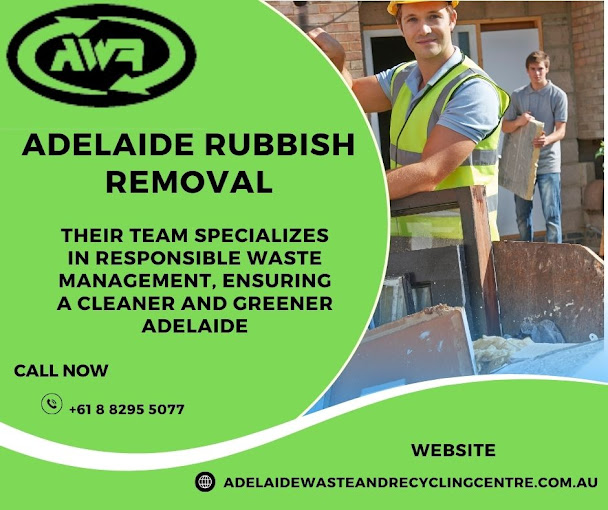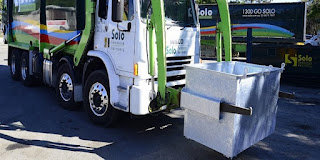Remove the Rubbish from Your Site for a Healthy Environment
Waste can be literally found in any form. We have hazardous waste, chemical waste, green waste, and waste in solid, liquid, and gaseous forms. Waste refers to anything that is discarded or deemed unfit for human use. It is sometimes also referred to as rubbish.
Liquid waste poses significant threats to water bodies
and sewer systems, endangering aquatic and marine life and causing sewage
system clogs. Solid waste, when improperly disposed of near forested areas, can
harm biodiversity as animals may ingest it. Gaseous waste contributes to
respiratory issues in both humans and animals.
The failure of industries and households to treat this
waste can have detrimental effects on the environment and public health. The
harmful compounds created by factories can be inhaled by people who live close
to them, posing a number of health risks, including organ failure and
respiratory conditions. It can contaminate the land and groundwater, which is
bad for agriculture and drinking water. Hazardous waste can have a negative
impact on plant and animal life as well as the health of the forest.
It is therefore important that industries and
households take voluntary responsibility for rubbish removal. Industries that
produce waste on a daily basis can approach any waste management company for
rubbish removal. In Australia, if you need services related to rubbish removal
and paper
recycling Adelaide , you can contact Adelaide Waste Recycling
Centre. It offers the best waste disposal services to Adelaide's businesses and
its residents, whether you are cleaning up the office, cleaning out the garage,
or taking your recyclables in for environmentally friendly processing. Some of
the more common recyclable rubbish types that we receive at the AWRC include:
·
Aluminum cans
·
Batteries
·
Cardboard and paper
·
Electronic waste
·
Empty gas bottles
·
Furniture and household items
·
Glass bottles and jars
·
Metals (both ferrous and non-ferrous)
·
Mobile phones
·
Oils, including used mineral engine oil
·
Paint (water or oil-based paint)
·
Textiles and wearable clothing
·
White goods and appliances
Paper Recycling is the Essence in the World of
Sustainability
For decades, we have been hearing about the principles
of paper recycling and how it is beneficial to the environment. Let us have a
look at some of the important paper cycling techniques:
Collection
The paper waste is collected and sorted according to
its types such as cardboard, office papers, newspapers, packing materials,
etc.
Pulping
Once sorting is completed, the paper waste is mixed
with water to form a pulp. This is done to break contaminants like fibres and
ink.
Deinking
Even after this if recycled paper has ink, then
methods like flotation and washing are undertaken to remove the ink.
Screening
Any remaining contaminant in the paper product is
screened and cleared.
Refining
Refining is done to improve the quality of the paper
product and it involves several industrial processes.
Formation
Paper formation begins in this technique and the pulp
is diluted with water to form a slurry, which is then spread to a wire mesh to
create a continuous paper sheet.
The experts at Adelaide
rubbish removal can handle all the steps in paper recycling. It can
also provide cardboard recycling bins for your business, with regularly
scheduled collections provided by Resource Recovery. The experienced
representatives of the company can tailor a recycling collection service to
best fulfil your requirements by attending your premises to conduct an
obligation-free assessment. This can result in savings by diverting waste away
from landfill to recycling. To capture more recycling at the source, you may
need to add another bin or make some changes to your processes. The company has
over eight decades of experience helping you manage all cardboard and paper
recycling, treating, and management initiatives.
Waste removal remains a significant part of sustainability that needs to be addressed in every forum possible. It is the duty of the industries, the State, and other important stakeholders like international bodies, intergovernmental organisations and advocacy groups to treat this as one of the major pillars of ecological viability. Waste management needs a collaborative effort from every unit of society. And therefore, it is also important that individuals start taking care of waste at the household level to decrease its harmful effects on the environment. Awareness must be created if we want to avoid the perilous effects of waste in any form. Greater importance should be given to hazardous waste as it can even prove to be fatal for humans and many animal species. Sustainable and environmentally friendly practices must be adopted by businesses as this might help to reduce waste in industrial spaces




.jpg)
Comments
Post a Comment